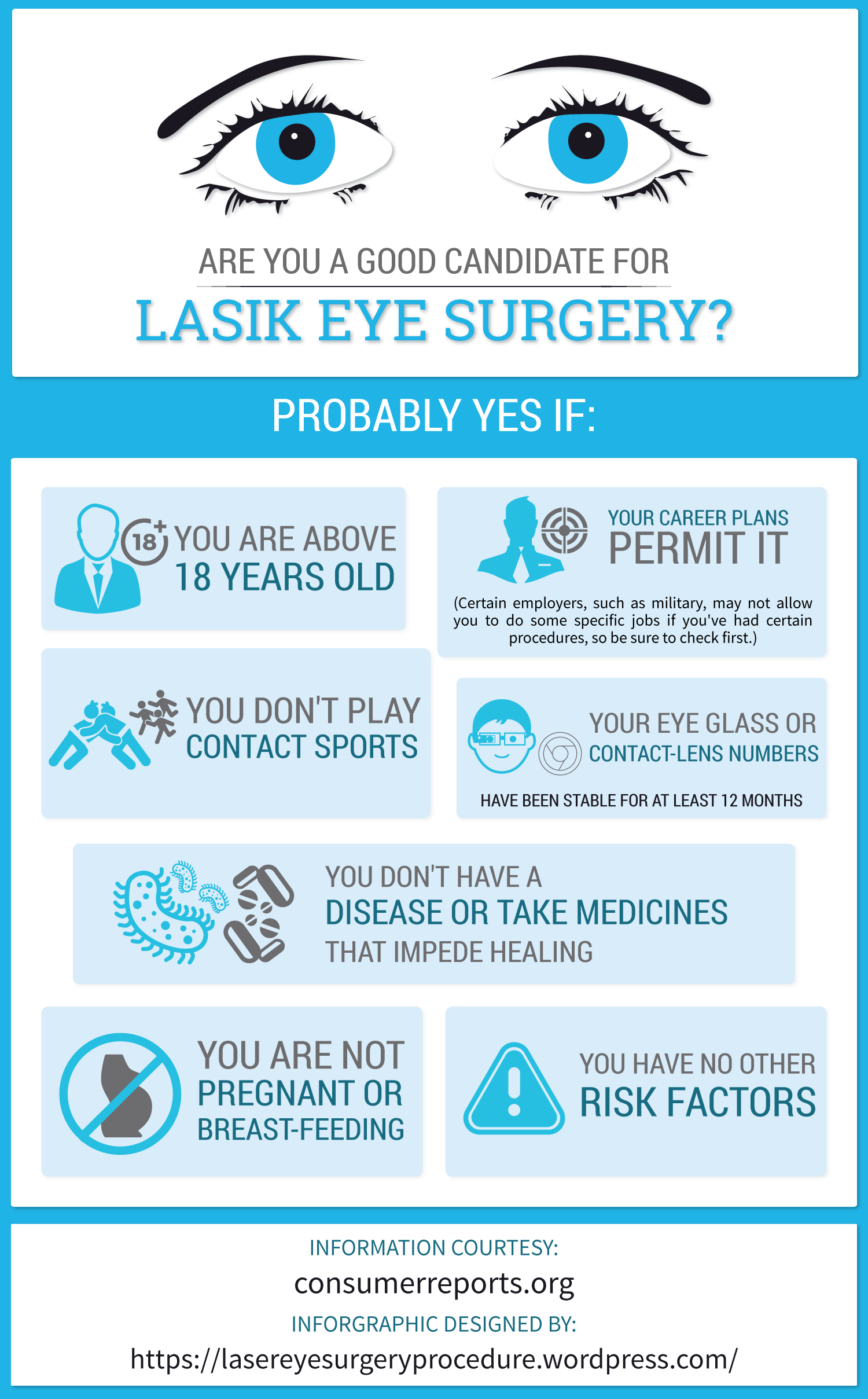Is SMILE Eye Surgical Procedure Right For You? Key Considerations And Insights
Is SMILE Eye Surgical Procedure Right For You? Key Considerations And Insights
Blog Article
Write-Up Writer-Clay Moss
If you're considering SMILE eye surgery, consider this: are you prepared to welcome prospective visual flexibility, or does the idea of any type of threats make you wait? Your decision will certainly depend upon a careful equilibrium of considering the benefits versus the unpredictabilities. It's crucial to dive deeper into the nuances of SMILE surgical procedure to make an educated option that lines up with your visual objectives.
Understanding SMILE Eye Surgical Procedure
When taking into consideration SMILE Eye Surgery, it is necessary to understand the treatment and its benefits. SMILE, which stands for Tiny Cut Lenticule Removal, is a minimally invasive laser eye surgery that remedies common vision issues like myopia (nearsightedness).
During the treatment, your eye cosmetic surgeon will utilize a femtosecond laser to develop a little laceration in your cornea. With this cut, a small disc of tissue called a lenticule is gotten rid of, improving the cornea and remedying your vision.
Among the key benefits of SMILE Eye Surgery is its fast recovery time. Several patients experience improved vision within a day or 2 after the treatment, with minimal pain.
Additionally, SMILE is known for its high success price in providing long-term vision improvement. Unlike LASIK, SMILE does not call for the development of a flap in the cornea, decreasing the risk of problems and enabling a much more steady corneal structure post-surgery.
Recognizing the procedure and its advantages is crucial when thinking about SMILE Eye Surgical procedure for vision improvement.
Advantages and disadvantages of SMILE
Taking Into Consideration SMILE Eye Surgical treatment for vision improvement includes various benefits and possible disadvantages.
One of the main pros of SMILE is its minimally intrusive nature, as it involves a small laceration and generally results in fast healing times. https://www.dailymail.co.uk/health/article-6497495/The-laser-eye-surgery-patients-driven-suicide.html is likewise known for creating marginal pain and completely dry eye signs and symptoms post-surgery compared to various other vision adjustment approaches. In addition, SMILE has actually been revealed to provide excellent visual results, with lots of people accomplishing 20/20 vision or far better.
On the other hand, a possible disadvantage of SMILE is that it may not be suitable for people with serious refractive mistakes, as the therapy array is rather limited compared to LASIK. An additional consideration is that the discovering curve for cosmetic surgeons carrying out SMILE can influence the availability of skilled providers in specific areas.
It is essential to consider these pros and cons carefully when determining if SMILE is the appropriate option for your vision correction needs.
Figuring Out Qualification for SMILE
To determine if you're qualified for SMILE eye surgery, your optometrist will carry out a detailed evaluation of your eye wellness and vision demands. During this evaluation, variables such as the stability of your vision prescription, the thickness of your cornea, and the overall health of your eyes will be assessed.
Normally, candidates for SMILE are over 22 years old, have a secure vision prescription for at least a year, and have healthy corneas without problems like keratoconus.
Your eye doctor will certainly also consider your total eye wellness, any type of existing eye conditions, and your way of living requires to determine if SMILE is the best choice for you. https://blogfreely.net/sook221louetta/delve-into-the-complexities-of-cataracts-and-uncover-the-therapies-offered-to to communicate any type of certain aesthetic requirements or problems you may have during this evaluation to ensure that the treatment aligns with your expectations.
If you aren't eligible for SMILE, your optometrist may suggest different vision modification alternatives that better fit your private needs and eye wellness status.
Verdict
Ultimately, choosing whether SMILE eye surgery is right for you requires mindful factor to consider of your specific eye health and wellness and visual requirements. Flap with your ophthalmologist to identify your qualification for the procedure and evaluate the potential benefits and downsides. Keep in mind to connect any kind of issues or concerns you might have during the examination process to make an educated choice regarding your vision adjustment alternatives.
